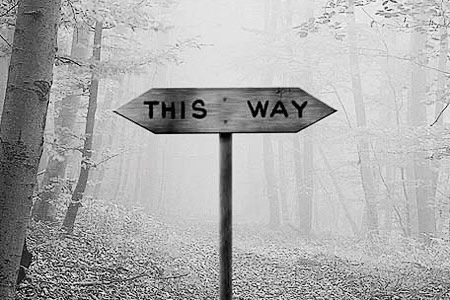3 things I wish I knew before starting my EdD

I am currently sitting on the sofa with my youngest son fast asleep on my lap. I have just finished watching some videos by Ali Abdaal, which inspired me to think a bit more about why I started my EdD, and what my current self in year 4 of a 6 year programme would tell my start-of-EdD self. It has been a long run already, and it has most definitely not been an easy journey so far. Since starting my EdD my wife and I have had two children, I have taken on a number of additional volunteer roles, suffered some health and mental health setbacks, and lived through a global pandemic. If only my start-of-EdD self would have known (but then again, would I have started the EdD if I would have known all these things?). Anyway, without further ado, 3 things I wish I knew before starting my EdD.

1 Comfort zones will be demolished.
As a bioscientist, I am now researching the experiences of other people. These experiences are not expressed in numbers and analysed with clever statistics and algorithms. Instead, I am submerged in the murky world of qualitative research. Qualitative research comes with plenty of -ologies: ontology, methodology (which surprise surprise is not the same as methods), etc. This is still a relatively alien concepts, and at first I was confused as to why doing research needs to be made so complicated. But then I realised somewhere during my third year that although having some understanding of ologies is useful, it is much more important to be pragmatic, and to simply choose the best tool for the problem, rather than adapt the problem to the tool. Since realising this my identity as a grounded theorist has shifted from pure Glaserian Grounded Theory to a more pragmatic variant of Glaserian GT (if this sounds like gobbledygook then don’t worry, I thought the same three years ago!).
2 Sometimes it is better to take a break, even if you don’t really want to.
Taking breaks during doctoral studies is something that divides supervisors and students. For some, it is an absolute no-no, for others is it accepted practice. As a full-time academic doing a part time doctoral programme, I have always tried to treat my EdD as a part-time job, rather than as a course of study. I see my supervisors as my peers and mentors, and my doctoral work as just work. I therefore had no problems at all with taking two periods of paternity leave when my sons were born. I did with in my day job, so why would my EdD be any different? Luckily I have very supportive supervisors who encouraged me to take plenty of leave.
In late 2020 I was forced to take leave for a different reason. I was struggling with my mental health due to various reasons. It took me a long time to seek help, and once I finally did, I felt relieved, mostly. I had no issues adapting my day job to my new situation, but I did not take time off (retrospectively this was a bad idea... listen to your GP folks!). However, my EdD was a different story. I struggled to let go for a bit, and it took some straight talking from my supervisors to get me to apply for some leave. I will be forever grateful to them for this. To this date I still don’t understand why I struggled with this, but I am glad I took some time to look after myself. I am slowly getting back on track. I am always worried I am behind and that I may not complete in time, but hopefully that will get better over time too. The key thing I want you to take home from this is that it is OK to not be OK, and that it is OK to take time for self care. Your research will only benefit from it. An EdD (or PhD etc) is hard enough as it is, so don’t make it harder by muddling through. For more on this topic have a look at the great work Dr Zoë Ayres does here.
Burnout – emotional or physical exhaustion brought about by overwork or stress – ultimately leads to reduced productivity and output.Dr Zoë J Ayres
3. Stretching your brain is fun.
I thoroughly enjoy my research. It is hard, difficult, frustrating and sometimes feels like it will never end. However, it is also lots of fun, and allows me to pursue my passions of evidence-based practice and open research practice. I am actively contributing to my field, and have met lots of interesting people that I otherwise would have never met. I help organise a regular early career grounded theorist colloquium, and have presented at seminars about and chaired panel discussions on a methodology I had never heard of 5 years ago. I am currently preparing an invited talk to some Canadian researchers focused on a novel contribution to grounded theory as a methodology, and have two manuscripts on the go. I have now made all my EdD research open and transparent where possible (link), and have coauthored a new platform for non-health related systematic review protocols. All this stuff came about mostly through my EdD, either directly, or through transferable skills I picked up that were useful for my day job.
So my last message is this: Enjoy your EdD journey. You (normally) only get to do this once, and there is so much out there that will benefit you. Engage with everything, and don’t be afraid to show your passion!
